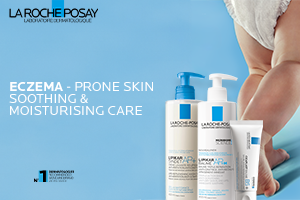Food allergies and eczema in infants are interconnected topics that have garnered attention in pediatric health. Here’s some information:
Link Between Food Allergies and Eczema:
Research suggests a potential association between food allergies and the development or exacerbation of eczema in infants.
Infants with eczema may have an increased risk of developing food allergies, and vice versa.
Common Allergenic Foods:
Some common food allergens that might trigger eczema in infants include cow’s milk, eggs, peanuts, soy, wheat, and fish.
It’s important to note that not all infants with eczema will have food allergies, and not all infants with food allergies will have eczema.
Prevention and Management:
Breastfeeding is often recommended as it may help prevent or delay the onset of allergic diseases, including eczema.
Solid foods should be introduced to infants cautiously, and high-risk allergenic foods may be introduced later to reduce the risk of allergies.
Consultation with Healthcare Professionals:
If there are concerns about food allergies and eczema in an infant, consulting with a pediatrician or allergist is crucial.
Allergy testing and other diagnostic measures may be recommended to identify specific triggers.
Eczema Treatment:
Eczema in infants is commonly managed with gentle skincare routines, avoiding irritants, and using moisturizers.
A healthcare professional may prescribe topical corticosteroids or other medications in severe cases.
Ongoing Research:
Ongoing research continues to explore the relationship between food allergies and eczema, as well as effective preventive measures.
Always remember that individual cases may vary, and it’s essential to seek personalized advice from healthcare professionals based on the specific circumstances of the infant.
Helping you since 2001
The Malta Eczema Society was set up in 2001 to help those with eczema and their families. The need for such a group in Malta, as found in other countries, had been felt for a long time. The society aims to help by providing support, information and practical advice via public talks and other activities and to increase awareness about eczema and the problems it may cause.
The Malta Eczema Society has also repeatedly lobbied the Maltese Health Authorities regarding entitlement for free medication for eczema sufferers. Until recently, patients with eczema, unlike those with other chronic conditions, were not eligible for any free medication for their condition no matter how severe and chronic it was because eczema was not included in the Schedule V list of chronic diseases. This was very unfair and discriminatory.
We are pleased to note that in 2021 the Schedule V list was amended to include patients with severe chronic forms of eczema. This was a big step in the right direction. However it is disappointing that new effective medications for severe eczema such as dupilumab and JAK inhibitors, which have been used in other countries for several years, are still not available in Malta. It is hoped that these will now become available here too. The MES will continue to insist that available funds should be utilised according to patients’ needs and that patients should not be discriminated according to which chronic disease they are unlucky enough to have. Eczema sufferers pay taxes like everyone else and should be given the assistance they deserve like other patients.
How can you help?
News
& Events
Summer Fundraising Event
Continue reading

